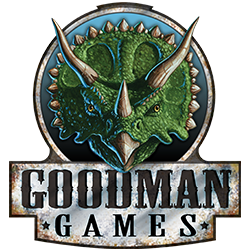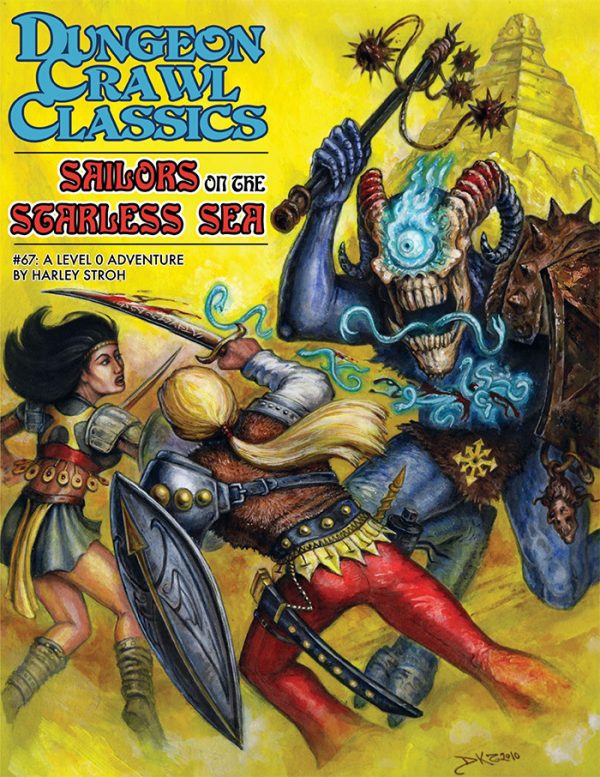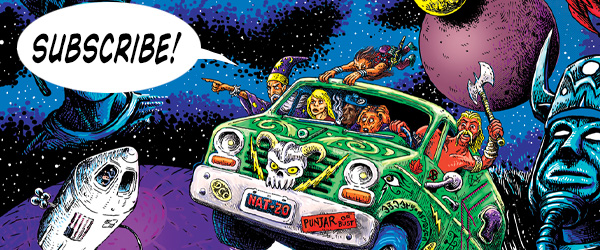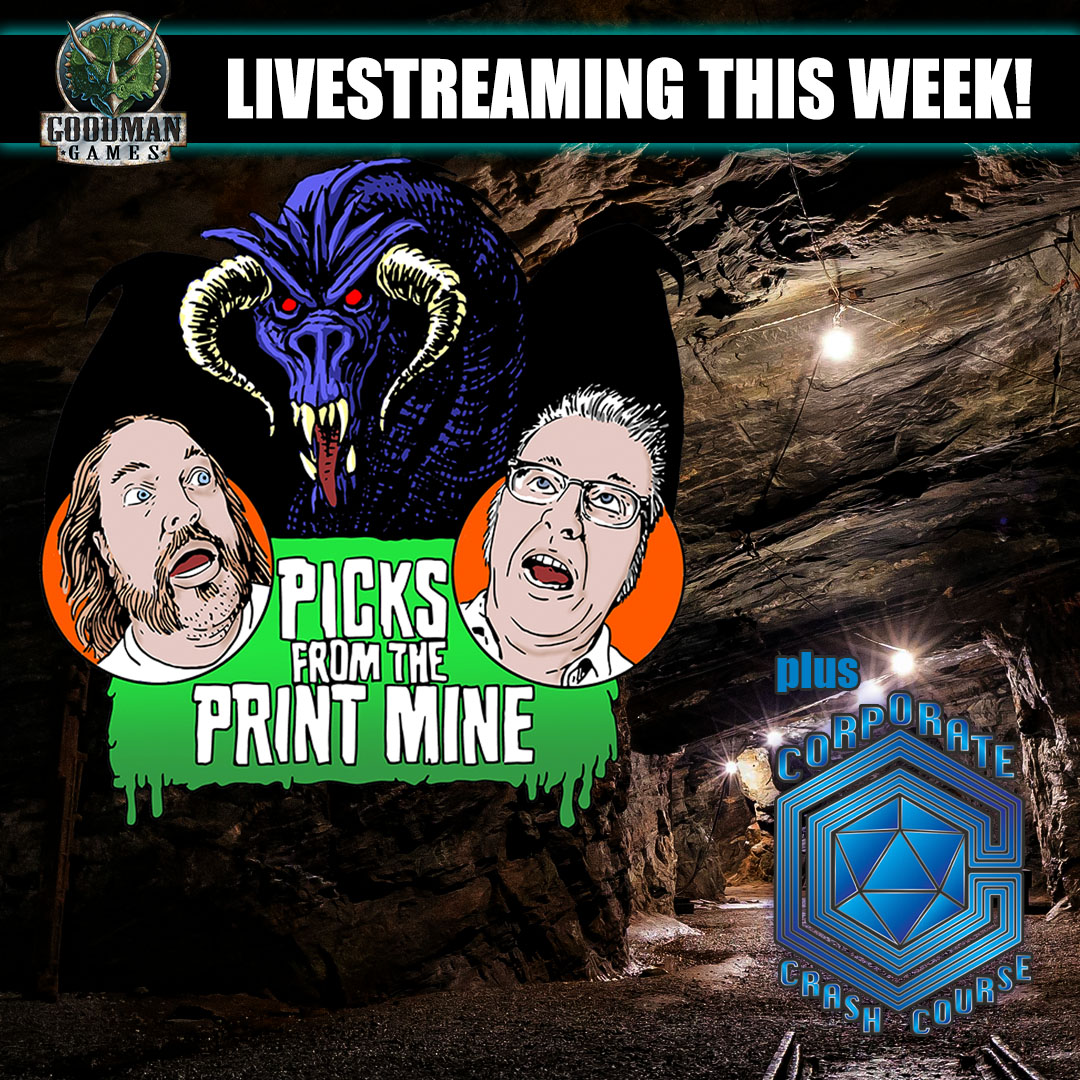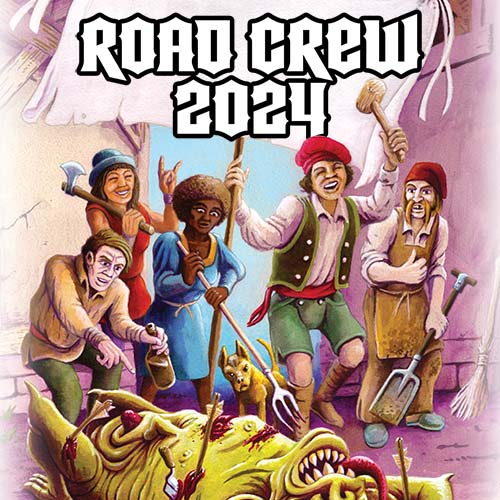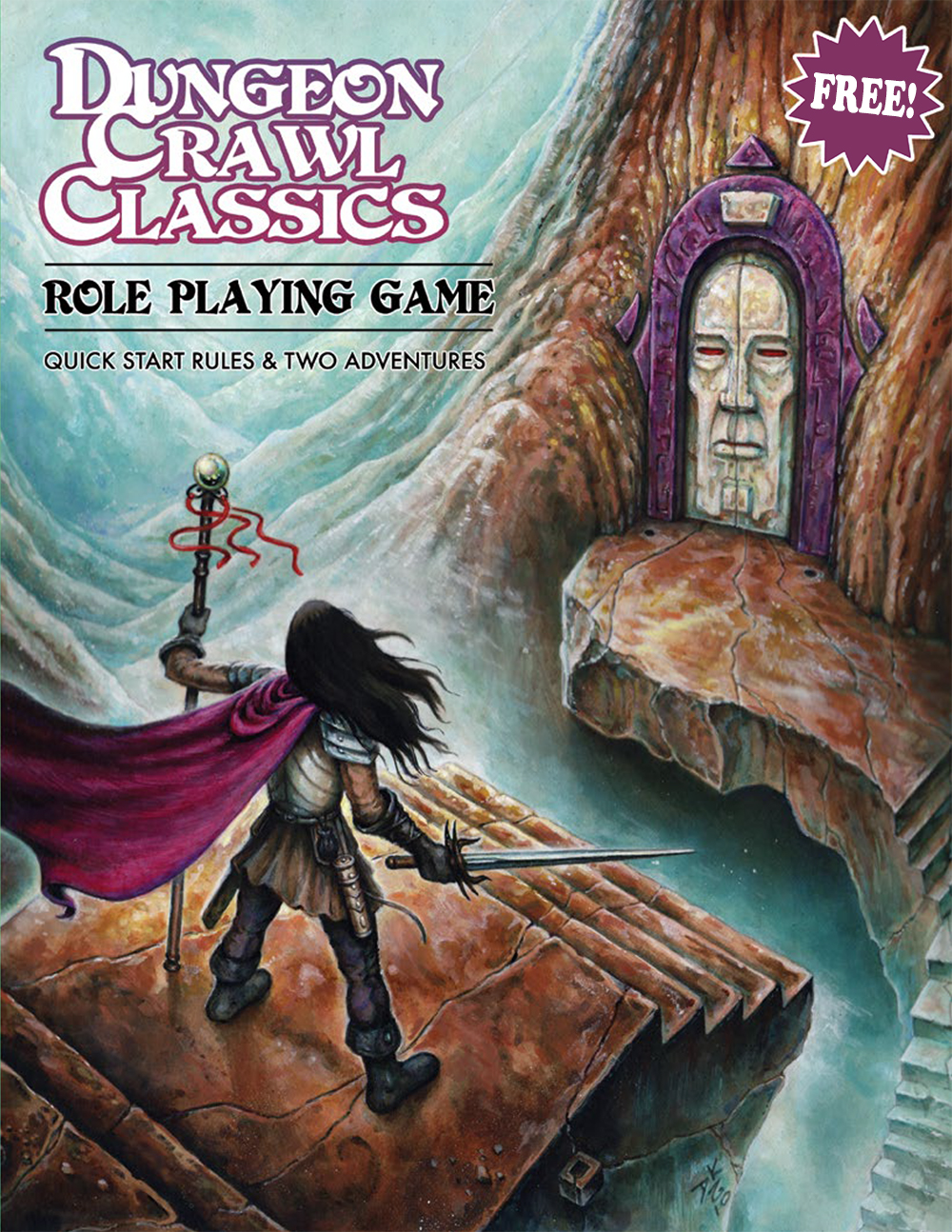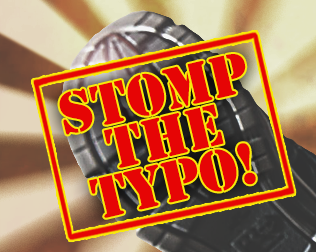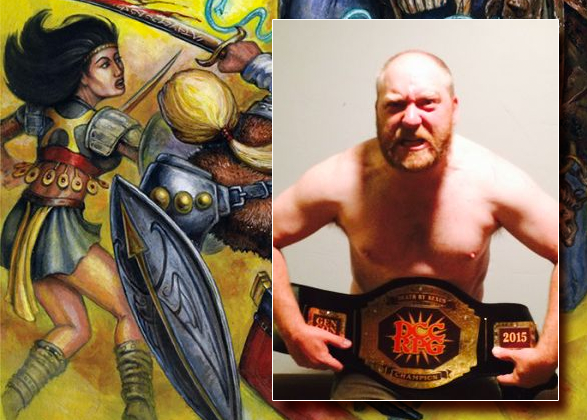
Our partner Akileos Publishing is responsible for the upcoming French edition of Dungeon Crawl Classics. We recently ran an interview they did with our own Dark Master, Joseph Goodman, but they didn’t stop there.
Akileos also conducted an interview with DCC-scribe-extraordinaire, Harley Stroh! This interview was already run on their site in French but was conducted in English, and we thought you might want to read it for yourself.
Here is the English version of the interview. Now you’ll be able to—or at least attempt to—understand the inner workings of the mind of Harley Stroh!
Hello Harley! Thanks for answering a few questions for us. First of all, could you first introduce yourself and tell us your background, how to came to play RPGs then write your own stuff?
Bonjour! Thank you for the questions!
I started playing roleplaying games as a child after my babysitter had to give up his D&D books because his family decided they were Satanic. (If only they could see the DCC RPG now!) I ran games for my little brother and my parents, and then our friends all through school and college.
After college, my gaming group was scattered by real life, and I didn’t have an outlet for all the DMing and judging I had been doing for the previous 20 years. I started writing adventures just so I could mail them off to my old friends. Around this same time, I came across Brendan LaSalle’s The Sunless Garden, DCC #10. I immediately fell in love with the blue-lined maps and black and white art and sent an adventure off to Goodman Games. I’ve been writing for Joseph ever since.
Could you tell us more of your writing process and how you get your ideas?
I am a terribly slow writer. I begin by collecting images of paintings that evoke a mood or a theme that I find inspiring. From there I start to rough out the adventure in broad strokes — trying to capture the tone I get from the paintings — and then circle back around to fill in the details and add depth.
My best work at Goodman Games is paired with Doug Kovacs. When he comes up with an amazing illustration or cover, I’ll re-write the text in an effort to ensure that the adventure lives up to his art. We saw this most prominently with DCC #67: Sailors on the Starless Sea. Doug’s Chaos Lord cover was a hundred times better than anything I could have imagined. As soon as he painted it, I went back to the manuscript and started re-writing.
You’re obviously one of the main voices of DCC, having penned almost half of the output of DCC adventures since the beginning, including probably the most famous one, Sailors on the Starless Sea which will be one the first we’ll translate in French. Any anecdotes on this one (inspiration, actual play, etc.)?
It was a great privilege to write Sailors. At the time we didn’t know if there would be a DCC #68 or not, so we had the freedom to pour all of our love of fantasy gaming into a single adventure.
I don’t run many published adventures for groups these days, but Sailors always surprises me. Most recently I ran it for a group of teenagers at our local library. These kids haven’t been gaming for long, so they don’t have concrete notions on how RPGs should be played and are always they come up with crazy and creative solutions when older, more experienced gamers might default to their expectations of “The Dungeon Crawl.”
At one point in Sailors, most parties encounter a horrific, monstrous leviathan, just before tackling a horde of beastmen and their Chaos Lord. The leviathan is too tough to fight, so players need to puzzle their way past it. At this point, Max, a 6th grader, tells me he wants to talk to the leviathan. It’s an absurd notion, so I ask him how.
Max takes a look at his character sheets and checks their occupations. “I’m a fisherman,” he answers. “I’ve learned the Song of the Sea.”
I tell Max that maybe his PC has heard some clicks and whale songs while out at sea. But, in order to talk to the leviathan, his PC is going to need to stick his head in the water, and that the leviathan will attack.
I roll the dice out in the open, and the leviathan misses. I ask Max to write a message using only one-syllable words. This was on him. None of the other players could help.
He runs off and five minutes later comes back with:
“HEY SEA BRO WILL YOU KILL MEAN GREEN THINGS. WE GAVE YOU FOOD.”
… and just like that, Max has weaponized the dungeon. He’s not trapped in a dungeon with beastmen. The beastmen are trapped in a dungeon with him.
Of course, the leviathan is pretty indiscriminate about who it consumes, so there are escalating Luck checks to avoid being torn to bits. We ended the session with a thousand tentacles writhing up the sides of the ziggurat, to drag scores of beastmen down into the wine-dark seas.
What’s in the works for you right now?
Presently I am counting down the days to DCC #100, the Music of the Sphere (Is Chaos). It’s our most ambitious DCC ever, and has some of the best art Doug has done since Sailors. Just like DCC #67, this was my chance to pour all the love I have for the weird and esoteric into a single adventure. I don’t know if we’ll ever see DCC #200, so I needed this one to be great.
Finally, any advice to aspiring French writers of future DCC adventures?
The DCC audience is hungry for new voices, and a fresh vision of the game is sure to find an eager audience. DCC already owes so much to Métal Hurlant. Imagine going back to those original inspirations as an alternative Appendix N and building out adventures from there. American minds would be blown and the DCC RPG would never be the same. So, if I had any advice to give, it would be this: Write the adventures you want to play; write what you love. The passion will be evident in the work and will inspire your judges and players to run great games.
